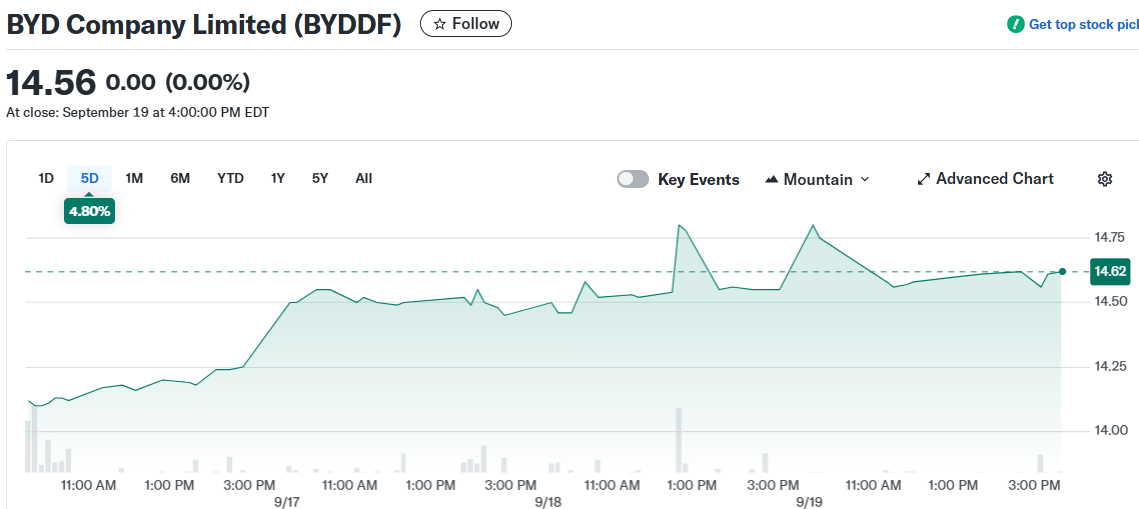TLDR
- Berkshire Hathaway sold its entire BYD stake, ending 17 years of ownership
- BYDDF stock fell 3% following confirmation of Berkshire’s complete exit
- Original 2008 investment of $230 million generated roughly 3890% returns
- Charlie Munger originally recommended BYD as a “damn miracle” investment
- BYD faces intense competition and has lost $45 billion in market value recently
BYD shares dropped over 3% in Hong Kong trading after Warren Buffett’s Berkshire Hathaway completely exited its stake in the Chinese electric vehicle maker. The move ends a 17-year investment that delivered extraordinary returns for the Omaha-based conglomerate.

Berkshire first acquired 225 million BYD shares in 2008 for $230 million. The purchase came at Charlie Munger’s recommendation, who described CEO Wang Chuanfu as extraordinary during the 2009 annual meeting.
The investment timing proved exceptional. BYD stock surged approximately 3890% during Berkshire’s ownership period, transforming the initial investment into billions of dollars.
Gradual Exit Strategy
Berkshire began reducing its BYD position in August 2022 after the stake reached $9 billion following a 41% quarterly jump. The company systematically trimmed holdings over subsequent months.
By June 2024, Berkshire’s ownership fell below 5%. This threshold eliminated disclosure requirements under Hong Kong exchange rules for future transactions.
Recent filings from Berkshire Hathaway Energy revealed the investment’s value dropped to zero by March 31, 2025. A company spokesperson confirmed the complete divestment.
BYD management responded positively to the exit news. General manager Li Yunfei thanked Berkshire for “17 years of investment, support, and companionship” on social media platform Weibo.
Market Challenges Intensify
BYD confronts mounting pressure in China’s competitive EV landscape. Tesla, Nio, and Li Auto have intensified market competition, forcing aggressive pricing strategies.
The company has implemented price cuts to maintain market share. While protecting sales volume, this approach has compressed profit margins and overall profitability.
China’s economic slowdown adds complexity to BYD’s operating environment. Policy uncertainty may have influenced Berkshire’s decision to exit completely.
BYD has lost $45 billion in market capitalization from peak levels over four months. The decline reflects investor concerns about competitive pressures and margin compression.
The company is pursuing international expansion to offset domestic challenges. This strategy aims to diversify revenue streams and protect profitability.
Despite current headwinds, analysts maintain optimism about BYD’s prospects. TipRanks shows a Strong Buy consensus with eight Buy ratings and two Hold recommendations.
The average analyst price target of $25.65 suggests 76.2% upside potential from current levels. Wall Street appears confident in BYD’s long-term growth trajectory despite near-term obstacles.
Berkshire’s complete BYD exit was confirmed through March 31, 2025 subsidiary filings showing zero investment value.





